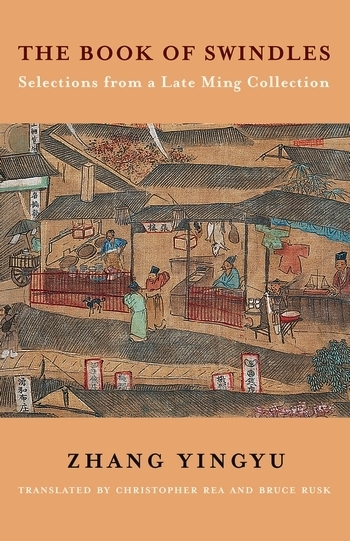My current research concerns issues of authenticity and deception in China in the Ming (1368–1644) and Qing (1644–1911) periods. I am working on a study of the invention of a new category of objects was invented and given new meanings. The so-called Xuande incense burners (Xuande lu 宣德爐) ostensibly date from the early fifteenth century, but I argue that they were created in the sixteenth century and that the received understanding of them represents an accretion of many layers of fiction, forgery, and fancy.
My other interests include the history of metallic money (especially silver) in China, grammatology (the study of writing systems), Chinese epigraphy and calligraphy, and the history of classical scholarship in China.
Books

Along with Christopher Rea, I co-translated the seventeenth-century short story collection Dupian xinshu 杜騙新書 by Zhang Yingyu 張應俞, as The Book Swindles: Selections from a Late Ming Collection (Columbia University Press, 2017), with the second volume, More Swindles from the Late Ming: Sex, Scams, and Sorcery forthcoming from Columbia in 2024. Both volumes include introductions to the background, setting, and literary features of the work. A Chinese edition is under contract from Ryefield Press in Taiwan.
Along with several colleagues, I also co-edited a volume on the history of the management of literary information in China, from ancient times to the present. Literary Information in China: A History (Columbia University Press, 2021) is the first study of a single literary tradition from the point of view of information studies, and the first attempt to synthesize the wide range of techniques for dealing with the abundance of literary information in China across time, from gathering poems into anthologies to classifying words in dictionaries and organizing entire libraries, paper and digital. It features over fifty contributions from experts in all forms and period of Chinese literature.

My monograph Critics and Commentators: Book of Poems as Classic and Literature was published in 2012 by the Harvard University Asia Center, as volume 81 of the Harvard-Yenching Monograph Series. This book examines how scholars of the canonical collection of ancient poems known as the Book of Poems or Poetry Classic (Shijing 詩經) borrowed from literary critics without attribution and even resorted to forgery to make appealing new ideas look old. By unraveling the relationships through which classical scholarship on the Book of Poems and theories of literary interpretation co-evolved from the Warring States Period (479–221 bce) through the early Qing period, it shows how the ancient classic was a catalyst for intellectual innovation and literary invention.